-
I understand that both sides are equally rational but I think it’s not the perfect timing to whine about the sound on a documentary. It’s just wrong. It seems like we see the story only from the technical point of view (if you get me)
-
For me it’s about context.
The quality of the work is beyond doubt, the gear as we all know is in good hands and to be on the scene is an achievement in itself.
People who are saying that the piano track is ‘wrong’, well I don’t agree. It is neither right or wrong, it depends entirely on what context the video is being viewed under, by whom and where.
That is why Laurence is right that in the context of news, the piano track is not a good fit. But in context of a documentary or a retrospective a few months after the event the music fits well.
So that’s my view… not black & white, not right & wrong. It’s not that simple.
-
Dan’s an artist.
Art will always be seen through different lenses dispite if it’s in the news or not.
Art is meant to comfort the troubled and trouble the comforted… Sounds like it’s doing just that. At least he got up and made something instead of just arguing about making something.
I loved it.
-
Podcast in which Dan Chung talks about “the aesthetic, logistical and reporting challenges he faced working in the disaster zone.”
http://www.david-campbell.org/2011/03/17/covering-japans-disaster-videojournalists-reflections/
(via alembic.tv)
-
Dan Cheung was wrong to make this video, making a piece of ‘art’ was not the right thing to do in the circumstances, but maybe that is the point. Given the fear mongering, biased agenda of the BBC and Sky News coverage, Cheung’s film crucially does not add an alternative view (unsurprising given he works for The Guardian) and therefore adds nothing of value to the overall coverage. To do that there should at the very least be some personal bias or interest. There isn’t, so it’s simply some guy with a camera shooting video for his own means (in this case getting paid), he just doesn’t need to be there. The fact he’s using a DSLR is totally irrelevant in this case.
Also I’m not convinced including a promo code in a blog on such a sensitive, controversial subject matter is the way to go. The seeming commercialisation of a tragedy is further demonstrated when clicking on the link to Philip Bloom’s site and being confronted by banners for various products. Maybe I’m old school, and for you new kids on the block this is ok, but personally I don’t think it’s appropriate.
-
I completely agree with Nino – and there is no “Maybe” in that last sentence, Roger.
-
I think you are seeing this a little out of perspective. Would it be inappropriate to place Banner ads to intentionally profit from an article on a tragedy like this? Absolutely. I would completely agree with that.
But that is not really the case here. The ads are on Philip Bloom’s site all the time. It doesn’t matter if he writes about DSLRs, little sweet kittens or a tragedy like this one. So yes, he did ‘commercialize’ his own website (Which, considering all the valuable information he is sharing seems just fair) but you can’t really charge him with commercializing the tragedy. He doesn’t have more ads on his website than he usually does.
Taking “The Guardian” for instance (Or any other online edition newspaper that is available for free). They have banner ads on their site and it doesn’t matter if you are reading the sports section or the an article about Japan. So do they commercialize the tragedy? Or my local radio station by not removing their usual ads?
Maybe it is a little ‘unfortunate’ that the first thing you see going to the site are the three banner ads. Maybe. But would I expect him to reprogram his website or even condemn and charge him with commercializing the tragedy? No, not at all.
He is putting the reach of his name to use to help the people and I think it is great and I hope he continues doing it in the future.
-
-
Personally, I liked it and also feel that it’s also too soon.
But that just means I care.
Care about the people who’s lives were ruined by this disaster.
I would be more troubled if I didn’t have any feeling over it. That would mean that I’d been desensitized by all the bad things that happen in this world today.
So for the people who felt troubled by it, I’m glad you care. I’m glad that not everyone out there is joking about it like that awful duck-voiced fellow or that boob job from ucla…Months from now people with footage from the area will no doubt add music to their edits and we will watch it and have feelings about the tragedy.
Be glad that people still care.
-
I think Thomas has it right. They’re not trying to ‘commercialize’ the tragedy, it’s just the nature of sites like Phil’s that use wordpress (I assume), that it’s probably quite difficult, if not impossible, to turn off ads for one specific post. Or at the very least, would require an IT type. This is however, coming from me who knows very little about wordpress & its customizations 😉
-
I agree that the music and tracking were inappropriate fro the subject matter given the timing. Perhaps in a few years, but not for news reportage. Just my 2 cents.
-
First, the criticism of Phillip for having ads on his site at the same time he rallies a fundraising effort is nonsensical. When CNN covers the earthquake they also have commercial breaks. When a theater chain screens Schindler’s List, they also screen trailers for other movies. When a record label sells the music from the Tribute To Heroes concert, they put it on the shelf next to other product.
Good intentions don’t have to be quarantined from the culture and the context in which they live. They should be judged by their authenticity, their content and the results they achieve.
Dan Chung’s video is not “news.” It may be journalism, but it is editorial journalism, like the subjective reporting of ER Murrow from the rooftops of London during the blitz or Cronkite’s reporting from Vietnam. In the face of extreme tragedy, there is no “objectivity.” Only eyes and ears that are there when we can’t be. Music track or no music track, it’s one person’s view of a story. As far as I can tell, he makes no claim to be clinically stating facts, only telling the story as he sees it. Compelling, and in the same spirit as all the Pulitzer winners who reported back from the scenes they were witnessing on our behalf.
-
Very much a non-issue, imho.
When I saw the videos, I was into them because of the subject matter. The dramatic conventions used (slider+music) felt to me as an invitation to consider the material in a much more abstract way than the news material I’ve been consuming elsewhere about the subject. I accepted the invitation, as cliched, melodramatic or technically gimmicky as it may or may not be, and used my experience watching it to wonder what the people are going through, the forces of nature and how I fit in the scheme of things. I commiserated with the people there a little, my imagination painting an emotional meaning on the sparse approach offered by Dan’s work.
There’s so much media out there in the world, that to question the moral appropriateness, while important, can most often be dealt with a bit of mild neglect, and if one feels so inclined, one as a creative force can bring in ones’ own vision, join the conversation, if you will, and provide a different perspective to the world by making our own artistic statement or expression. Anyone is welcome to make their own video however they see fit.
But to feel offended, moralistic or judgmental about it is missing the point by a wider margin. It reminds me of a confucian saying I’m not afraid to misquote:
One who is offended by an unintended insult is a fool. One offended by an intentional insult is twice the fool.
-
Would this have been inappropriate if shot in black and white? Perhaps if Dan had shot it using a holga lens strapped to a Red One or a Scarlett body? Where is the line for repectful journalism?
Draw it where you will, this is not an issue of taste, it is a fundamental question of what we percieve news to be, and that is what Dan is challenging in this film. I worked for a short time in London in 2001/2 in the same press packs as Dan and even then he was a pioneer whose images showed a unique view of the world around him.
To say that it is inappropriate to use a slider is like objecting to using a flash, or say, a 50mm lens, or simply not liking f2.8. On that, let’s outlaw anything smaller than f8 – I don’t like seeing too much detail in one shot.
Are we so blinded by convention that we may only – for ever and ever – shoot news in the same way as it has been shot since videotape took over from film? Or can we understand collectively that convention is usually a function of the available technology and that technology is one thing guaranteed to change.
Let’s evolve and embrace the pioneers who are challenging the way we view news and therefore the world around us. -
I don’t consider this ‘gratuitously sad’ music (as someone aptly named it) to have anything to do with art. I think it’s cliché. And annoying. I don’t have to be told by the music that what I’m looking at is sad, I can figure that out myself. So it’s over the top for use as a news item.
I also find it annoying that the slider is used for every single shot. People talk about how skilfull Dan is but I find his choice to do so bad judgement. Too much of a good thing does not make it better, on the contrary. It becomes cliché, distracting, self-defeating.
One could argue that the means justify the goal. Whatever works to help the people in Japan should be applauded and I certainly agree with that. All else is a matter of taste. -
I love this video, Living in Japan its being shocking to see the way the foreign press have covered the Earthquake/Tsunami and then the nuclear incident. This video shows the terrible devastation and also the amazing way the Japanese people are dealing with this tragedy…with out saying one word.
-
Anytime you put one image next to another, you create a story. This film is no different. The way the camera has been used is not in a journalistic sense, or genre. It’s more dynamic, fluid, cinematic. This is just a choice. As is the use of music. All the footage that has come out of Japan is telling a story of one sort or another. It’s just most use conventions we have become so accustomed to, we do not ever question it.
I am sure some people will criticise this work. As some will hail it great work that challenges convention. Who is right?
Getting into a debate is not the point.
This is just the work of a film maker who is offering to share it with the world. It either touches you or it does not. Offends you or not. Challenges you or not. You either ‘get it’ or you don’t.
For me it took me to a place that no news footage has taken me.
I learned something new about the tragedy. I can’t explain what that ‘new’ thing that I learned is, but I know it’s there.
I can only imagine the film maker also wrestled with inner demons too whilst filming. It can’t have been easy to shoot, edit and release.
Well done Nino for sharing this.
Chris Jones
-
Wir berichten regelmäßig in der Tagesschau (ARD) über die Katastrophe. Der Film von Dan Chung mit der umstrittenen Musikunterlegung hat nichts mit seriösem Journalismus zu tun. Also in unserer Sendung. “no chance” Kurz ausgedrückt: Stylized-tragedy instead of serious Journalism
-
Personally I’m still uncertain about the music.
On the other hand there are lot of very positive comments on Dan’s film. And these different thoughts are not a question of right or wrong. It shows there are different ways to deliver a message – which should be allowed as (independent) filmmaker…

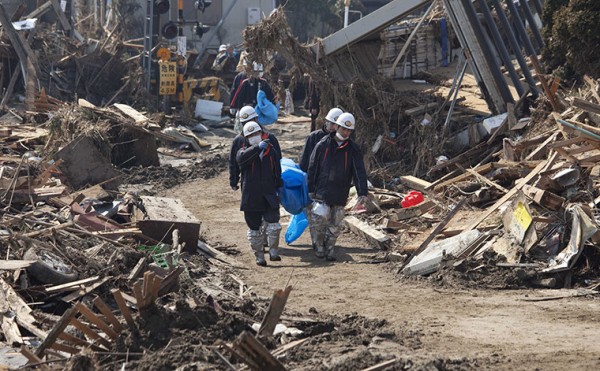



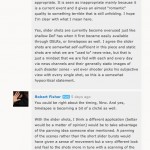
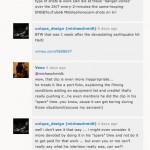

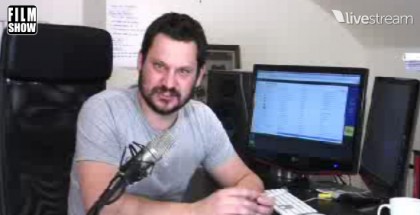
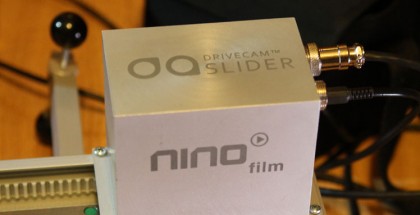
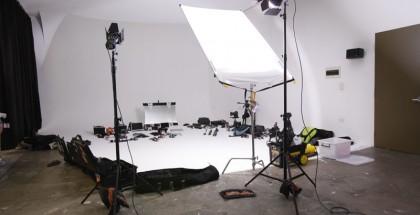
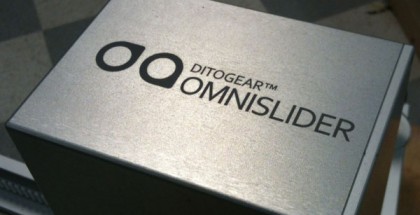
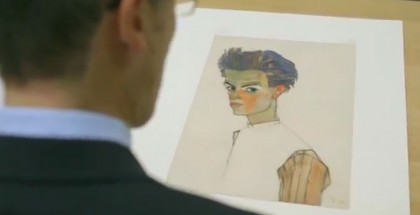

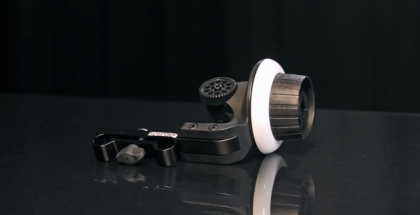













Comments